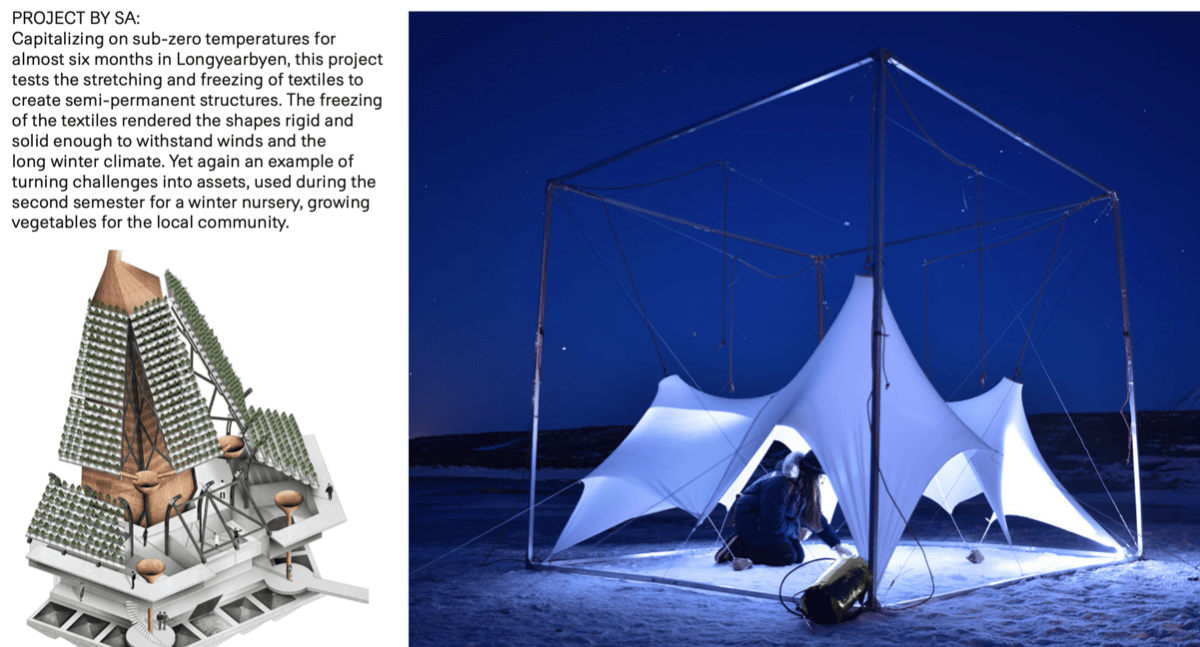
The UIA Innovation in Architectural Education Award 2020/2021
The UIA is pleased to announce that 16 projects from 9 countries on 4 continents were submitted to the inaugural edition of the UIA Innovation in Architectural Education Award, organised by the UIA Education Commission and launched in November 2019, to celebrate innovation across cultural and geographic boundaries and to promote inspiring pedagogical practices contributing to the creation of sustainable environments.
Open to colleges, schools, departments or programmes of architecture worldwide, the inaugural UIA Award for Innovation in Architectural Education recognised excellence in architectural and urban design education, focusing on innovative pedagogies that foster the development of sustainable environments across the five UIA Regions, while reflecting their broad diversity. Aligning with the UNESCO/ UIA Charter for Architectural Education, the Award emphasised the role of architecture and urban design education in addressing the societal and environmental challenges facing the built environment, and in articulating the opportunities those challenges create.
Theme and objectives
The Award is established to celebrate the multifaceted nature of innovation across the boundaries of cultures and geographies, and to promote inspiring pedagogical practices that contribute to the creation of sustainable environments.
Key criteria
The jury recognised entries on the basis of two key criteria: 1) excellence in pedagogical practice and 2) excellence in shaping a sustainable future.
Eligibility
- Any school/programme of architecture worldwide recognised by higher education authorities in its corresponding country. This includes independent schools/programmes or schools/ programs within public or private universities.
- The school/programme must have been established for at least 10 years.
- The school/programme must offer a professional degree in architecture, which is recognized by its local higher education authorities and/or local validation/accreditation body.
- UNESCO-UIA validation is not a requirement for entry.
Jury Members
The Jury, consisting of Oya Atalay Franck (Switzerland), Harriet Harriss (United Kingdom/USA), Derya Oktay (Turkey), Konstantin Kiyanenko (Russia), Thomas Fisher (USA), Beatriz Maturana Cossio (Chile), Mustapha Mohd Saleh (Malaysia), Lindy Osborne Burton (Australia), Carin Smuts (South Africa) and Hassan Radoine (Morocco) met on 25 January 2021.
Results
The Jury awarded 4 entries:
Region 1: The Royal Danish Academy, School of Architecture, Copenhagen (Denmark), David A. Garcia
Architectural Education Through On-Site Collaboration – Architecture and Extreme Environments
“In close collaboration with local communities who are situated in extreme environments globally, this programme impressively engages with all 17 of the UN Sustainable Development Goals, while demonstrating great sensitivity to environmental issues and the integration of research into design.”
Region 3: University of Washington – Seattle (USA), College of Built Environment, Department of Architecture, Elizabeth M. Golden
Seminar: Traditional Building Methods: New Adaptations
“An innovative and powerful programme that involves interdisciplinary and international collaboration/participation, with a focus on building construction, using tradition building methods and hands-on learning.”
Region 4: School of Architecture, Southeast University, Nanjing (China), Zhang Tong, the staff and students at the School of Architecture
Living Construction in Rural Communities
“The innovative 6-year, M.Arch programme weaves together architectural, cultural, social and environmental learning, bringing an impressive focus on issues central to rural communities (building traditions, physical restoration, and community revitalization).”
Region 4: School of Architecture – Tsinghua University (China), Song Yehao
“A wonderful collaboration between architecture academics, students and local communities. Pedagogically and sustainably grounded, it provides an exciting range of real-world learning opportunities, to demonstrate through built projects how design can incorporate unique vernacular materials and approaches through ‘learning by doing’.”
The Jury further identified 3 entries to be commended for their inspiring proposals that successfully bridge gaps between architects and communities and between various built environment disciplines:
Region 1: ETSAB-UPC: Escola Tècnica Superior d’Arquitectura de Barcelona (Spain), Program directors: Ibon Bilbao and Josep Bohigas and Dean of the School: Félix Solaguren
Community Architects – Arquitectos de Cabecera Studio Unit (Taller Temàtic AC)
Region 4: School of Architecture, Southeast University, Nanjing (China), Han Dongqing and Bao Li and the staff and students at the School of Architecture
Positive Intervention in Urban Transition
Region 4: School of Architecture, Southeast University, Nanjing (China), Wang Jianguo, Han Dongqing, Bao Li, and the staff and students at the School of Architecture
Key dates
Prizes
Up to five (5) prizes were awarded. This included one (1) prize for one school/programme located within each of the five UIA Regions. The jury reserved the right not to award all the medals if entries do not meet the eligibility or submission requirements, or if entries fall short of the required standards. Conferral of honourable mentions was at the discretion of the jury.
Winners and selected entries formed part of the UIA Education Commission Exhibition at the 27th UIA World Congress in Rio de Janeiro, Brazil and of other forms of UIA publications and exhibitions.